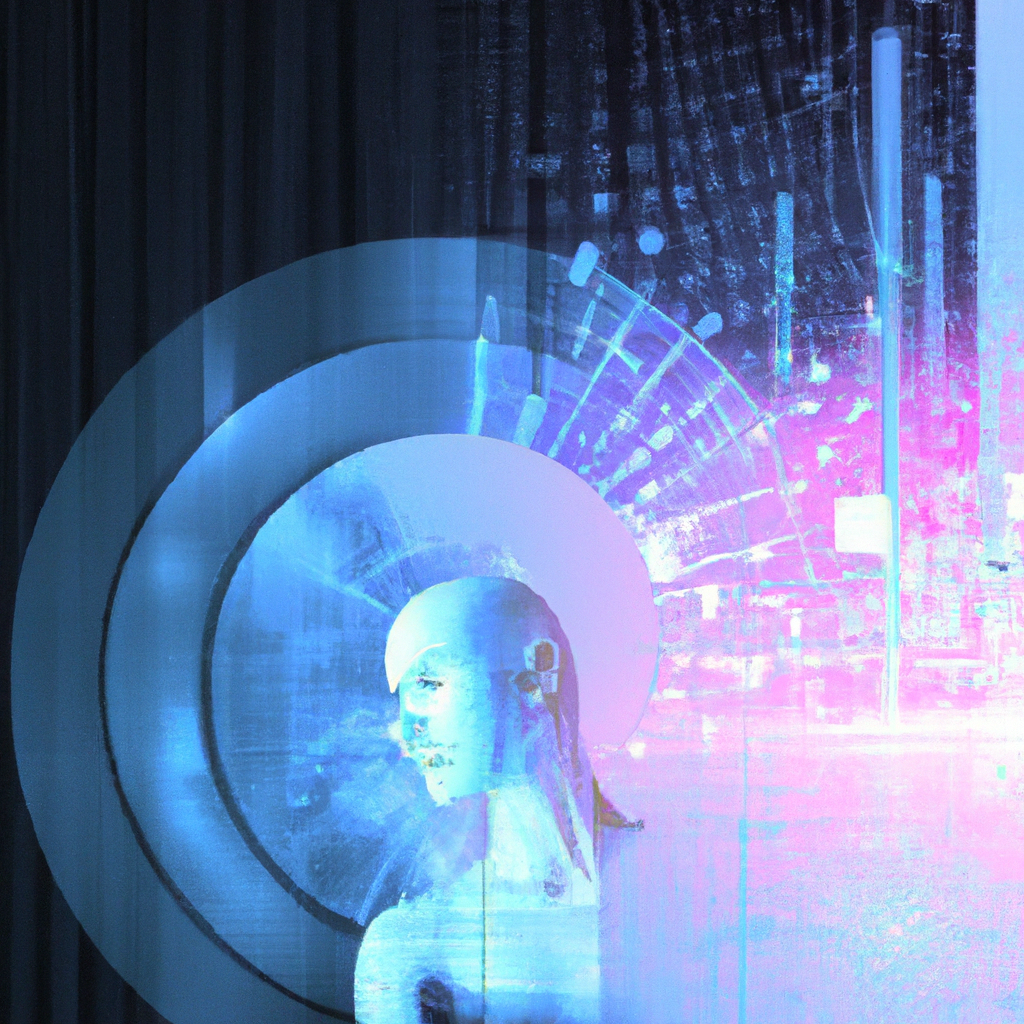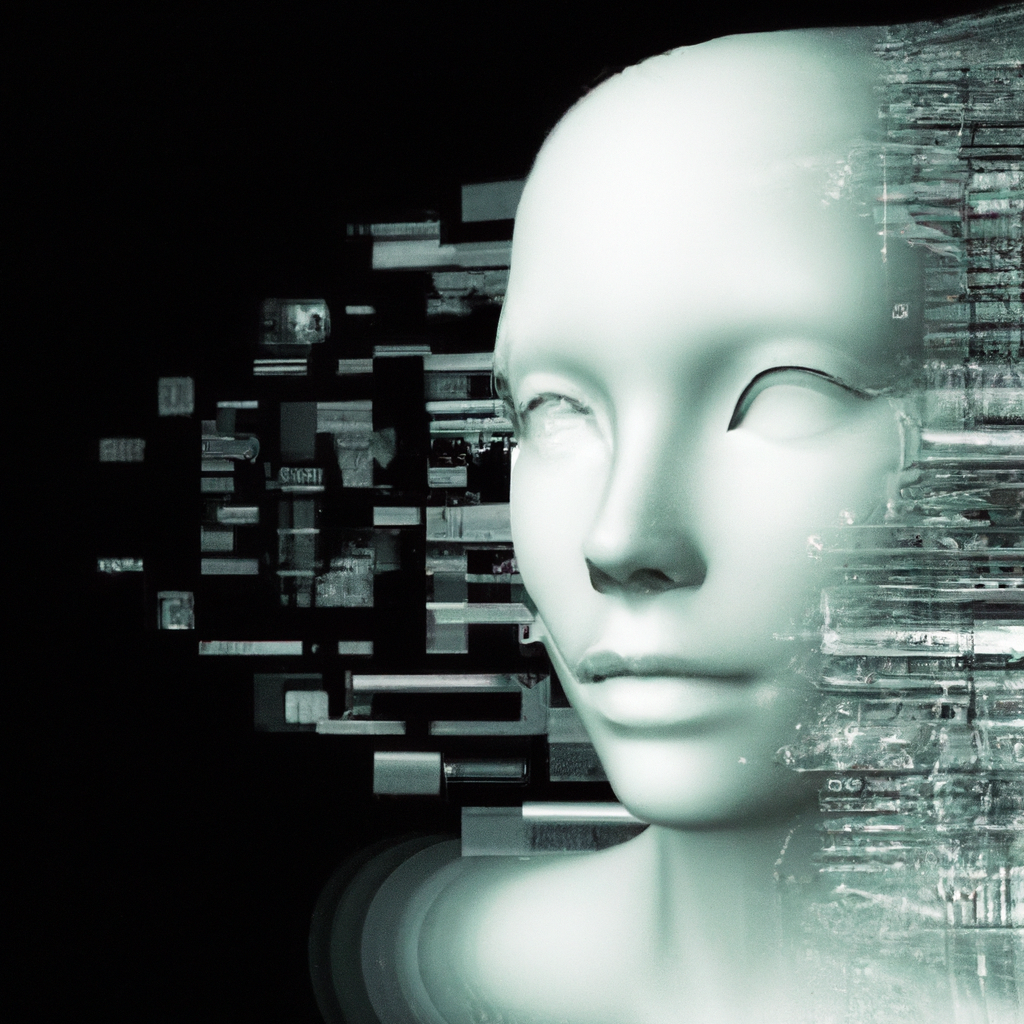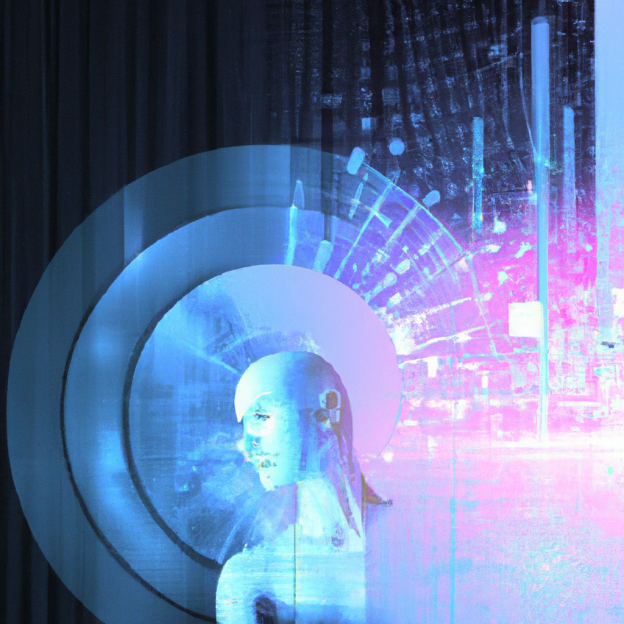Artificial Intelligence, or AI, is no longer just a concept confined to science fiction movies; it has become an integral part of our daily lives. But have you ever wondered what exactly is the purpose of AI? Well, simply put, AI aims to replicate human intelligence and perform tasks that require human-like decision-making capabilities. From virtual assistants like Siri and Alexa to self-driving cars and recommendation algorithms, AI helps automate processes, make predictions, and enhance efficiency across various industries. Speaking of which, one popular example of artificial intelligence is autonomous vehicles, which utilize advanced algorithms and sensors to navigate roads without human intervention. These AI-powered machines are revolutionizing transportation and paving the way for safer roads in the future.

Understanding Artificial Intelligence
Artificial Intelligence (AI) refers to the simulation of human intelligence in machines that are programmed to think and learn like humans. It involves the development of intelligent machines that can perform tasks that typically require human intelligence. AI encompasses various subfields like machine learning, natural language processing, and robotics. As a rapidly evolving field, AI holds immense potential to revolutionize industries and change the way we live and work.
Definition of Artificial Intelligence
Artificial Intelligence can be defined as the theory and development of computer systems that are capable of performing tasks that would typically require human intelligence. It involves the creation of intelligent machines that can learn, reason, and problem-solve. AI systems are designed to analyze large volumes of complex data, recognize patterns, and make informed decisions or predictions. The goal of AI is to create machines that can replicate or surpass human intelligence in specific areas.
History of Artificial Intelligence
The history of Artificial Intelligence can be traced back to the 1950s when researchers began exploring the concept of creating machines that could simulate human intelligence. The term “artificial intelligence” was officially coined in 1956 at a conference at Dartmouth College. Early AI pioneers like Alan Turing, John McCarthy, and Marvin Minsky laid the foundation for the field by developing theories and algorithms that paved the way for machine learning and other AI subfields. Over the years, AI has seen significant advancements with the development of technologies like neural networks, deep learning, and natural language processing.
Applications of Artificial Intelligence
Autonomous Vehicles
One prominent application of AI is the development of autonomous vehicles. AI technology is used to enable self-driving cars to perceive their surroundings, make decisions, and navigate safely. By leveraging sensors, cameras, and advanced algorithms, autonomous vehicles can detect obstacles, interpret traffic signs, and react in real-time. AI-powered self-driving technology has the potential to improve road safety, reduce accidents, and enhance transportation efficiency.
Virtual Personal Assistants
Virtual personal assistants like Siri, Alexa, and Google Assistant have become ubiquitous in our daily lives. These AI-powered assistants use natural language processing and machine learning to understand and respond to users’ queries and commands. They can perform tasks like setting reminders, sending messages, providing weather updates, and even controlling smart home devices. Virtual personal assistants are continually learning and adapting to user preferences, making them indispensable tools for many individuals.
Customer Service Chatbots
Artificial Intelligence has transformed the way companies interact with their customers through the use of chatbots. Chatbots are AI-powered computer programs that can simulate conversations with human users. They are designed to answer customer queries, provide support, and handle routine tasks. By automating customer interactions, chatbots can improve response times, provide 24/7 support, and free up human agents to focus on more complex issues.
Medical Diagnosis
AI has the potential to revolutionize healthcare by augmenting medical diagnosis. Machine learning algorithms can analyze vast amounts of medical data and detect patterns that might not be visible to human experts. AI systems can assist doctors in making accurate diagnoses, identifying early warning signs of diseases, and suggesting personalized treatment plans. By leveraging the power of AI, healthcare professionals can improve patient outcomes and reduce healthcare costs.
Fraud Detection
Artificial Intelligence is also extensively utilized in fraud detection systems. AI algorithms can analyze large volumes of data, such as transaction records and user behavior patterns, to identify potentially fraudulent activities. By detecting anomalies and patterns indicative of fraudulent behavior, AI-powered fraud detection systems can help financial institutions, e-commerce platforms, and other organizations prevent financial losses and protect customer data.
Benefits of Artificial Intelligence
Improved Efficiency
One of the primary benefits of AI is improved efficiency. AI-powered systems can automate repetitive tasks, enabling organizations to complete them faster and with higher accuracy. By leveraging machine learning algorithms, AI systems can continuously learn and improve their performance, leading to increased efficiency over time. This increased efficiency allows businesses to optimize operations, reduce costs, and allocate resources more effectively.
Increased Accuracy
AI’s ability to analyze vast volumes of data and detect patterns enables it to achieve a high level of accuracy. AI algorithms can process and analyze data with speed and precision that surpasses human capabilities. In fields like medical diagnosis or financial analysis, AI can provide more accurate results, reducing the risk of errors and improving decision-making. Increased accuracy leads to better outcomes, whether it’s diagnosing diseases, making investment decisions, or predicting market trends.
Enhanced Decision Making
Artificial Intelligence enables data-driven decision-making by providing valuable insights and recommendations. AI algorithms can analyze complex data sets and extract meaningful patterns and correlations. These insights can assist decision-makers in understanding trends, identifying risks, and exploring new opportunities. By augmenting human intelligence with AI-powered analytics, organizations can make more informed decisions and drive innovation.
Time and Cost Savings
Implementing AI systems can lead to significant time and cost savings for businesses. By automating repetitive tasks and streamlining processes, AI reduces the need for manual labor and eliminates human errors. Additionally, AI’s ability to analyze vast amounts of data in a fraction of the time it would take a human enables organizations to make better use of their resources. The time and cost savings provided by AI can be redirected towards more strategic and value-added activities.

Challenges of Artificial Intelligence
Ethics and Responsibility
As AI continues to advance, ethical considerations and questions of responsibility emerge. Developing AI systems that align with societal values and ethical standards is crucial. Issues like bias in AI algorithms, autonomous weapon systems, and the impact of AI on privacy raise important ethical dilemmas. It is essential to establish guidelines and frameworks to ensure that AI systems are developed and used responsibly, prioritizing human well-being and accountability.
Job Displacement
The rise of AI technologies has raised concerns about job displacement and the impact on the workforce. As AI systems automate tasks and processes, certain jobs may become obsolete or require fewer human workers. This technological displacement can result in unemployment and socio-economic inequality. Addressing the challenges posed by AI-related job displacement requires a combination of reskilling and upskilling initiatives, along with proactive measures to create new job opportunities.
Privacy and Security Concerns
With the increasing use of AI comes significant privacy and security concerns. AI systems often rely on accessing and analyzing vast amounts of personal or sensitive data. This raises questions regarding data privacy, consent, and the potential misuse or unauthorized access to personal information. Organizations must implement robust security measures and adhere to privacy regulations to protect user data and ensure trust in AI systems.
Future of Artificial Intelligence
Advanced Automation
The future of AI lies in advanced automation, where machines go beyond repetitive tasks and perform complex decision-making processes. AI systems will become more intelligent, learning from real-time data and adapting to changing circumstances. Advanced automation will revolutionize industries such as manufacturing, logistics, and customer service, boosting productivity and efficiency.
Machine Learning
Machine learning is a subfield of AI that focuses on algorithms and models that can learn from data without being explicitly programmed. As AI continues to evolve, machine learning will play a key role in enabling systems to continuously learn and improve. The future of AI will involve more advanced machine learning techniques, such as deep learning and reinforcement learning, which will enhance the capabilities of AI systems.
Predictive Analytics
Predictive analytics, powered by AI, involves extracting patterns and trends from historical and real-time data to make predictions about future events or outcomes. The future of AI will see the integration of predictive analytics in various industries, enabling organizations to anticipate customer behavior, optimize operations, and make proactive decisions. By leveraging AI’s predictive capabilities, businesses can gain a competitive edge and drive innovation.
Robotics Integration
The integration of AI with robotics will shape the future of automation and robotics technology. AI-powered robots will become more intelligent, capable of performing complex tasks, and interacting with humans and their environment. From manufacturing to healthcare, robots powered by AI will enhance productivity, precision, and safety while enabling humans to focus on more creative and strategic activities.
AI in Healthcare
The future of AI in healthcare holds immense promise. AI systems will continue to assist healthcare professionals in diagnosing diseases, predicting outcomes, and recommending treatment plans. The integration of technologies like wearables and genomics with AI will enable personalized healthcare, driving advancements in precision medicine and improving patient care. AI will play a vital role in addressing healthcare challenges and enhancing medical outcomes.
Ethical Considerations in Artificial Intelligence
Bias and Discrimination
One of the most crucial ethical considerations in AI is the potential for bias and discrimination. AI algorithms learn from historical data, which can reflect existing societal biases. If not carefully designed and trained, AI systems can perpetuate discrimination, favor certain groups, or reinforce stereotypes. It is essential to develop AI systems that are unbiased, inclusive, and fair, considering diverse perspectives and being transparent about the data and algorithms used.
Transparency and Accountability
A key ethical concern in AI is the lack of transparency and accountability in AI decision-making. AI systems often rely on complex algorithms that are not easily understandable by humans. This lack of transparency raises concerns about how decisions are made, what criteria are used, and whether biases are present. It is critical for organizations to foster transparency and accountability in AI systems, enabling users to understand and challenge decisions made by AI algorithms.
Artificial General Intelligence
Artificial General Intelligence (AGI) refers to AI systems that possess the ability to understand, learn, and apply knowledge across various domains, similar to human intelligence. The development of AGI raises ethical concerns about the potential impacts and implications of creating machines that can surpass human intelligence. Ensuring the responsible development and deployment of AGI and addressing concerns like control, autonomy, and human-machine collaboration is crucial.
The Role of Data in Artificial Intelligence
Data Collection and Analysis
Data plays a central role in AI, serving as the fuel for training and developing AI algorithms. The collection and analysis of high-quality, diverse, and representative data are essential for building robust and accurate AI systems. AI algorithms require access to relevant and comprehensive data to learn patterns, make predictions, and produce meaningful insights. Organizations must invest in data collection and establish proper data governance frameworks to ensure the availability of quality data for AI applications.
Data Privacy
As AI relies on vast amounts of data, ensuring data privacy is of utmost importance. Individuals have the right to know how their data is being collected, stored, and used by AI systems. Organizations must adhere to data protection regulations and implement robust data privacy practices, including encryption, data anonymization, and secure storage. Building trust through transparent data practices is essential for the responsible and ethical use of AI.
Data Bias and Fairness
Data bias is a significant concern in AI as algorithms learn from historical data that may contain inherent biases. If not addressed, these biases can lead to discriminatory outcomes and reinforce societal inequalities. Organizations must actively identify and mitigate biases in data and algorithms by establishing diverse and inclusive training data sets, conducting bias audits, and implementing fairness metrics. Ensuring fairness and avoiding unjust discrimination in AI systems is crucial for their ethical use.
Impact of Artificial Intelligence on Society
Education and Skills Development
The impact of AI on education and skills development is significant. AI-powered tools can personalize learning experiences, adapt to individual student needs, and provide real-time feedback. However, there is a need to equip individuals with the skills required to thrive in an AI-dominated future. Investing in education and training programs that promote digital literacy, computational thinking, and AI-related skills is crucial for preparing individuals for the changing workforce.
Social and Economic Inequality
The rise of AI has the potential to exacerbate social and economic inequalities. Automation may lead to job displacement, widening the gap between skilled and unskilled workers. Access to AI technologies can also vary, further deepening inequalities. Addressing these challenges requires policies that promote equal access to AI technologies, investment in reskilling and upskilling programs, and the creation of inclusive and diverse AI ecosystems.
Automation of Jobs
The automation of jobs is a significant concern as AI systems can replace certain job roles. While automation eliminates repetitive and mundane tasks, it can also lead to job displacement and economic disruption. It is essential to prioritize a human-centered approach to AI deployment, focusing on augmenting human capabilities and creating new job opportunities. This can be achieved through proactive workforce planning, retraining initiatives, and the development of AI technologies that collaborate with humans.
Addressing Concerns in Artificial Intelligence
Regulation and Governance
To address the ethical and societal implications of AI, effective regulation and governance are crucial. Governments and regulatory bodies need to establish clear guidelines and frameworks that ensure responsible AI development and use. Regulatory measures should focus on transparency, accountability, algorithmic fairness, and data privacy. Collaboration between policymakers, industry leaders, academics, and civil society is essential to strike the right balance and foster ethical AI practices.
Collaboration and Partnerships
Addressing the challenges of AI requires collaboration and partnerships across various stakeholders. Governments, industry leaders, research institutions, and civil society organizations need to come together to build a common understanding of AI’s impact and develop solutions. Collaborative initiatives can promote knowledge sharing, research advancements, and the establishment of ethical standards. By working together, stakeholders can shape the future of AI in a way that benefits society as a whole.
Ethical Guidelines
To ensure the responsible and ethical development and use of AI, the establishment of ethical guidelines is crucial. These guidelines should outline principles and best practices regarding fairness, accountability, transparency, and privacy in AI systems. Organizations can develop their own ethical guidelines or adhere to existing frameworks like the IEEE Standards Association’s Ethically Aligned Design. Ethical guidelines provide a roadmap for AI developers, users, and policymakers to navigate the ethical landscape of AI.
Conclusion
Artificial Intelligence has the potential to enhance efficiency, accuracy, and decision-making across various industries. However, it also presents ethical challenges and societal implications that need to be addressed. By fostering transparency, accountability, and inclusivity, and by prioritizing human well-being, we can harness the power of AI for the benefit of society. The responsible and ethical development and use of AI will shape the future and ensure the integration of AI technologies that align with our values and goals.
